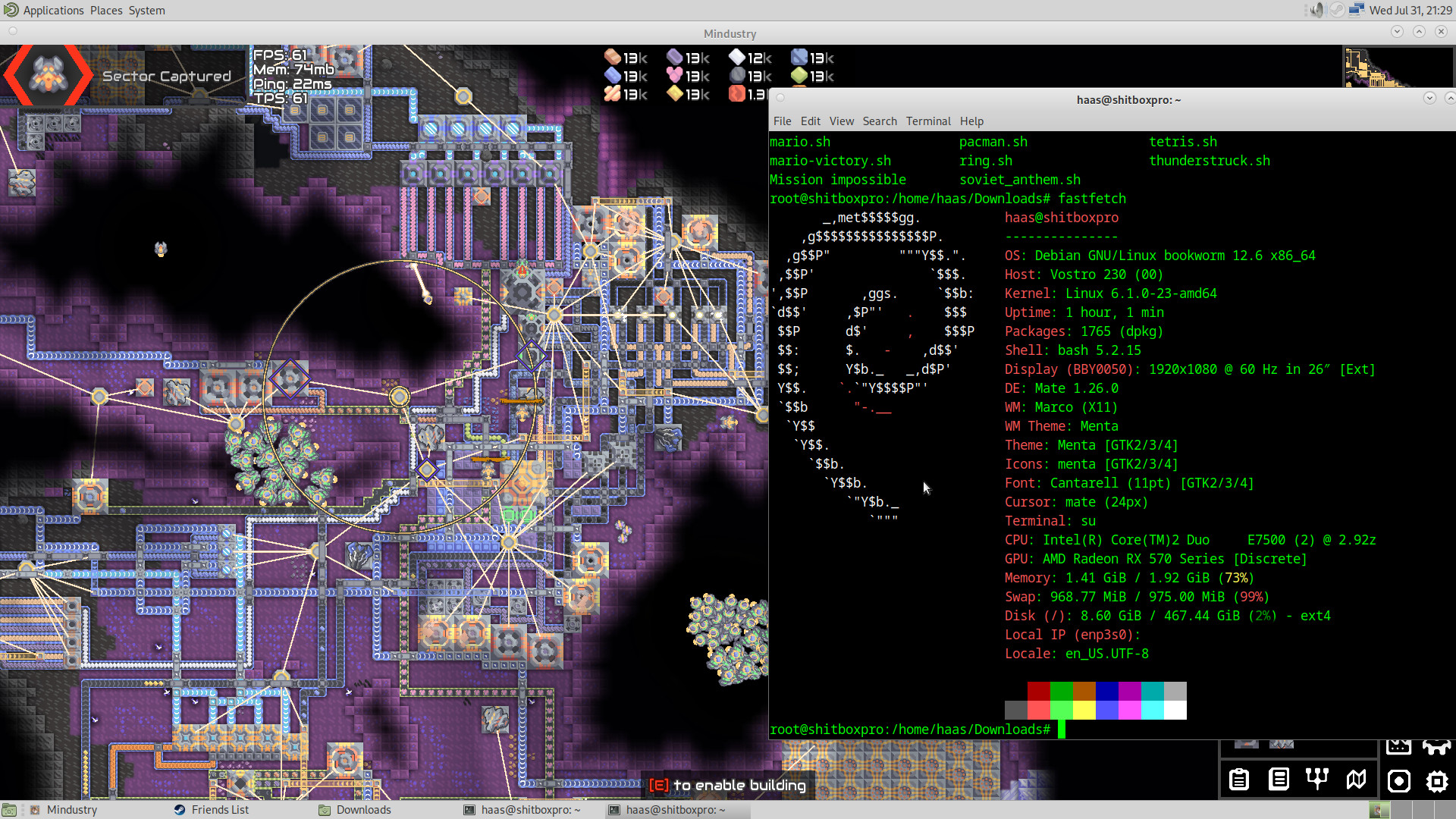So over the weekend me and the lads decided to play Mindustry (i think im addicted). Ive never been a fan of RTS games but Honestly been loads of fun. I usually play on the Ybox which is what i called by LAN rig. but sadly the motherboard kicked the bucket (it was a xeon 2697v3 14 core and a X99 machinist motherboard which ran gentoo). so i dug around in the closet to hopefully salvage game night and found 'yeee old reliable', so the cool part is mindustry has really low system requirements
Linux Minimum: Memory: 1 GB RAM Graphics: Anything with OpenGL 2.0 Support Storage: 200 MB available space
So me and the Bois played just like normal, except i was running 10+ year old hardware and you really couldnt tell the difference the system specs for the "shitboxPro" as named
Intel core 2 duo E7500 AMD RX 570 2Gb of ddr2 RAM Running Debian 12 with the Mate Desktop (i was originally going to install Gentoo on it but didn't want to spend 3 weeks compiling LMAO)
it kinda blows my mind that this new of a game, granted its writ-in JavaScript and uses so little ram and runs on grandmas pacemaker. it kinda leaves me wondering what happened to the gaming industry? It went from excellent games that sipped ram to storage queued for a 200G update (im looking at you COD war zone). I also want to express my gratitude Towards Debian and Linux as a whole, this computer cannot run windows 10. I live booted just to see the slideshow that was windows 10 on 2GB of ram, and Debian ran really smooth. also shout out to the Dev for a great game that's insanely optimized!
I would love to hear about other experiences you have had with legacy hardware and use cases!
Thanks for reading and have a good one!
--added note, my apologize for the bad punctuation and such i never was good at english in primary LMAO

That 10+ year old "legacy" hardware was practically a supercomputer not long before that, and there aren't many things we do with computers now that we didn't back then.
Sadly, developers and publishers have collectively decided that efficiency no longer matters, since they can instead pressure users into short hardware upgrade cycles, forever. They reduce their own costs by skimping on design and optimization time, and pass those costs on to everyone else. The transferred expense is immeasurable, as it includes money, time, wasted power, wasted materials, pollution, and is multiplied by however many users they have.
Yep. It warms my heart a little whenever I hear from someone discovering what a difference efficient software makes. Thanks for the story.